#new york review books
NYRB is the North American distributor for the UK publisher Notting Hill Editions, who put out beautiful, clothbound pocket-sized books. This fall, they release a unique travel memoir of the Amazon from the neurologist A.J. Lees and a collection of journalism from Winnie-the-Pooh’s A.A. Milne.
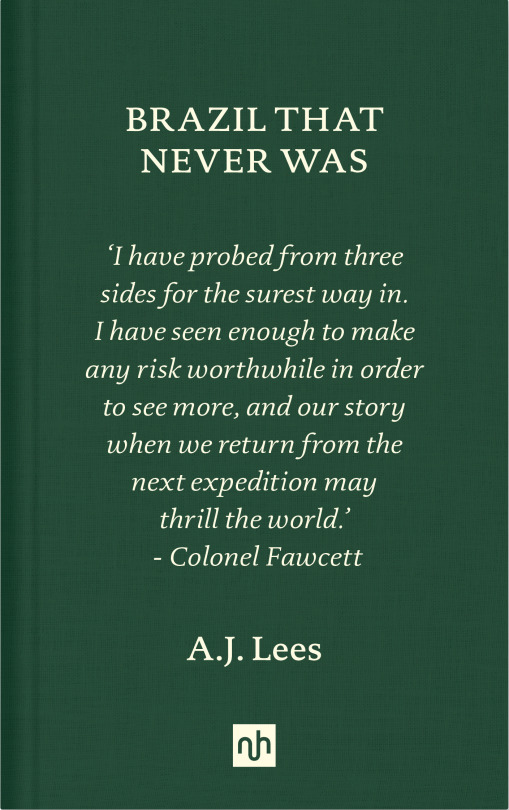
A.J. Lees, Brazil That Never Was(September)
As a child, Andrew Lees became obsessed with the British explorer Percy Fawcett, who disappeared in search of a lost Amazonian city. Years later, he followed in his footsteps—and discovered Fawcett’s quest was far stranger than he ever could have anticipated. Brazil That Never Was is part travelogue and part memoir, and a testament to the pitfalls of nostalgia.
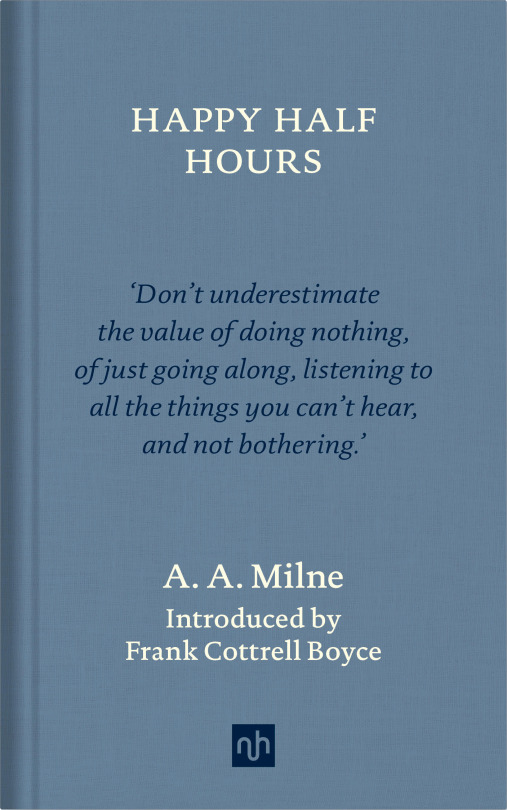
A.A. Milne, Happy Half Hours: Selected Writings(October)
BeforeWinnie-the-Pooh, A.A. Milne was a notable writer of plays, novels, verse, and journalism. Happy Half Hours collects the best of his articles for the humor magazine Punch, ranging from the year 1910 to 1952 and on everything from lost hats and umbrellas, tennis, dogs, and faulty geysers to cheap cigars.
Our fall season includes two bilingual collections of poetry newly translated from the French, by Alice Paalen Rahon and Claire Malroux—both poets who occupy the space between two worlds, be they of language, nation, culture, sexuality, or philosophy.

Alice Paalen Rahon, Alice Paalen Rahon(September)
Alice Paalen Rahon was a shapeshifter: a surrealist poet turned painter who was born French and died a naturalized citizen of Mexico. Bicultural, bisexual, and fiercely independent, her romantic life included affairs with Pablo Picasso and the poet Valentine Penrose. This new selection of Rahon’s poems celebrates the visionary work of a woman who defied easy definition.
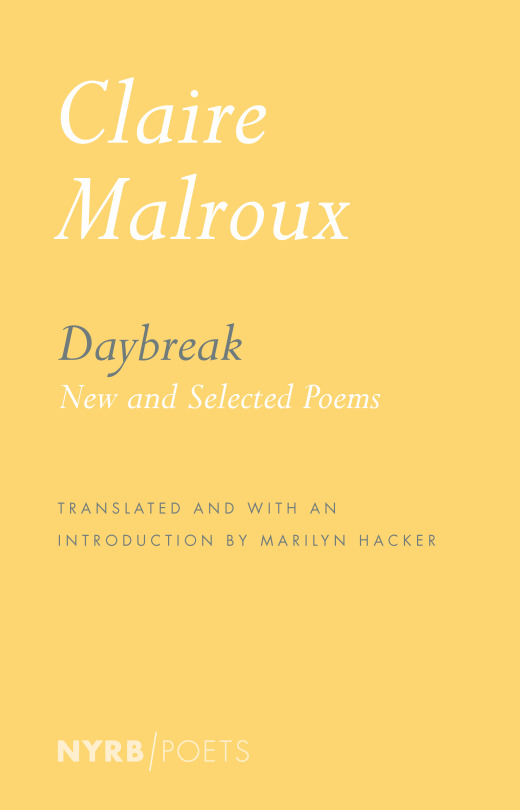
Claire Malroux, Daybreak: New and Selected Poems(October)
Claire Malroux holds a unique place in contemporary French poetry, with influences from both the French and Anglophone traditions—especially the work of Emily Dickinson. Her subtle, intimate poems move between an intense, abstract interiority and an acute engagement with the material world. This new volume is a bilingual selection by the award-winning poet and translator Marilyn Hacker.
We wrap up our fall Classics preview with two nonfiction books out in January 2021: a strikingly sensory childhood memoir by a philosopher of the mind and a vital biography of the prophet Muhammad.
Stay tuned for more fall titles from NYRB Poets, New York Review Comics, Notting Hill Editions, and NYRB Kids.

Richard Wollheim, Germs: A Memoir of Childhood
This lyrical memoir from the major British philosopher is an surprising ode to the confusions of childhood. A lonely child, Wollheim’s early days were defined by sense and sensation, and he describes sights and scents with extraordinary power. As the Wall Street Journal put it, he’s “incapable of writing a bad sentence.” Sheila Heti, author of MotherhoodandHow Should a Person Be?, contributes the introduction.
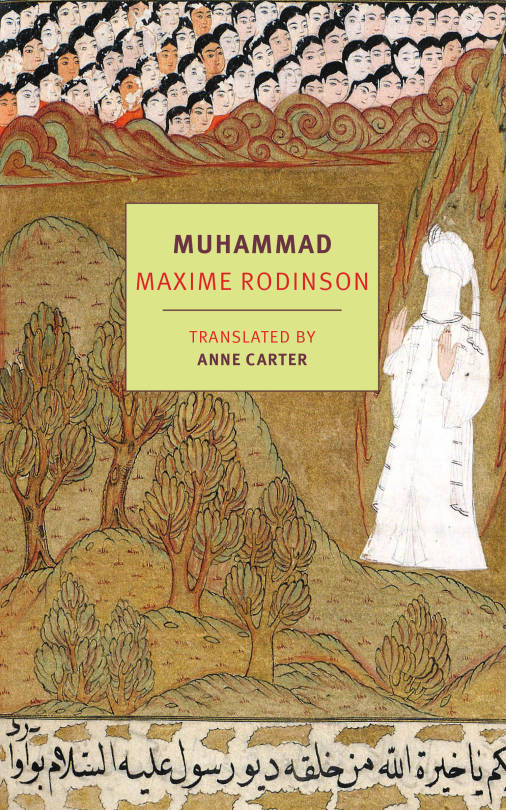
Maxime Rodinson, Muhammad
First published in 1960 and called “essential” by Edward Said, this biography of Muhammad is an undisputed classic of the field. Rodinson, a Marxist historian who specialized in the Islamic world, traces the larger context of the Prophet’s life and calling—emphasizing his humanity all the while.
On the docket for December are new translations of Guido Morselli’s eerily prescient tale of the last man standing after humanity disappears without a trace and André Gide’s pioneering metafiction classic, Marshlands.
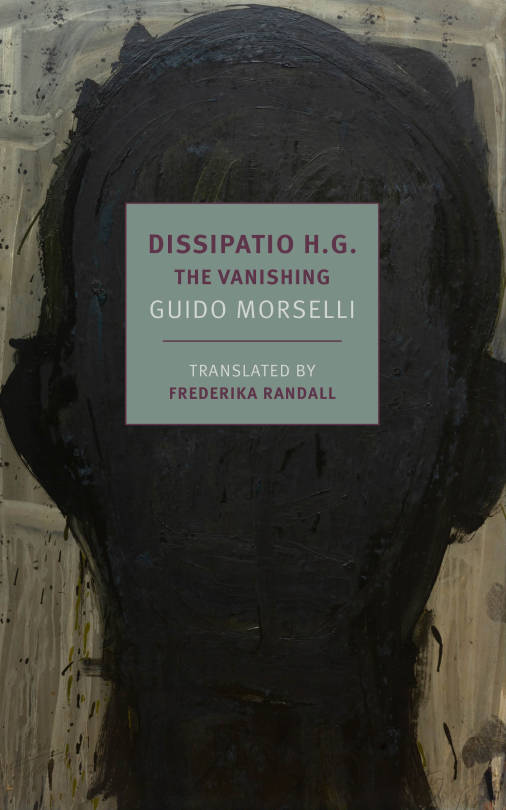
Guido Morselli, Dissipatio H.G.: The Vanishing
From the author of The Communist comes this postapocalyptic novel about a man who drives down to the capital from his retreat in the mountains only to find he’s the last person left on earth. As he travels around searching for provisions and any sign of humanity, he finds that the rest of nature is flourishing.
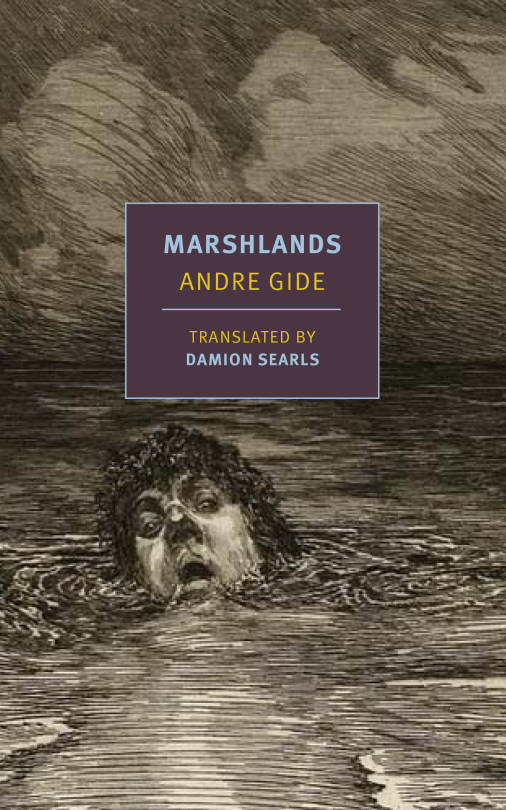
André Gide, Marshlands
This metafictional masterpiece and send-up of writerly pretension packs a punch in its ninety-six pages. Its narrator, a social butterfly of the Parisian literati, needs everyone to know about his new novel, Marshlands, about a recluse living in a stone tower. His literary friends aren’t too impressed—and their feedback becomes as much a part of Marshlands as the novel itself.
In November, we have a newly translated volume of Józef Czapski’s haunting memoirs of the Soviet Starobielsk prison camp and insightful reflections on art making, alongside Leonora Carrington’s The Hearing Trumpet, a delightful surrealist adventure set in the strangest of nursing homes.
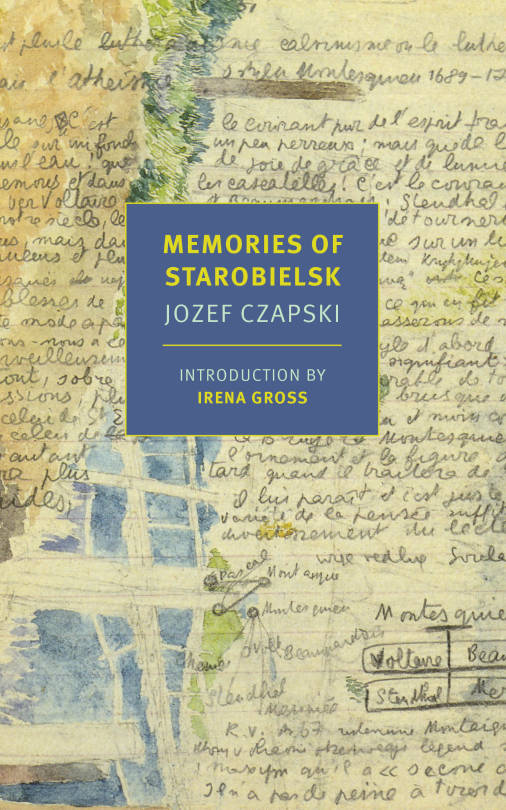
Józef Czapski, Memories of Starobielsk
The Polish artist, writer, and army officer Józef Czapski became a Soviet prisoner during World War II—experiences he illuminated in Lost TimeandInhuman Land, previously published by NYRB Classics. This new volume includes his memoirs of the doomed men of the Starobielsk prison camp, where he was one of just a few Polish officers to escape execution. Also included are a selection of Czapski’s essays on art, history, and literature.

Leonora Carrington, The Hearing Trumpet
Beloved by Björk, Ali Smith, and Luis Buñuel, The Hearing Trumpet is a fantastic romp starring an eccentric ninety-two-year-old woman who is institutionalized by her family. But this is no ordinary institution: the buildings are shaped like cakes and igloos, the residents must undergo bizarre religious training, and it houses an ancient, mysterious magic. This feminist fable by the treasured surrealist painter remains one of the most original and inspirational of all fantastic novels.
Also arriving in October are these two books, hailing from Russia and China. Nikolai Leskov—“Russia’s best-kept secret,” according to translator Donald Rayfield—wrote his strange folktales in the nineteenth century, while Ge Fei’s newly translated novel follows a woman fighting for equality in the chaotic Chinese climate of 1898.
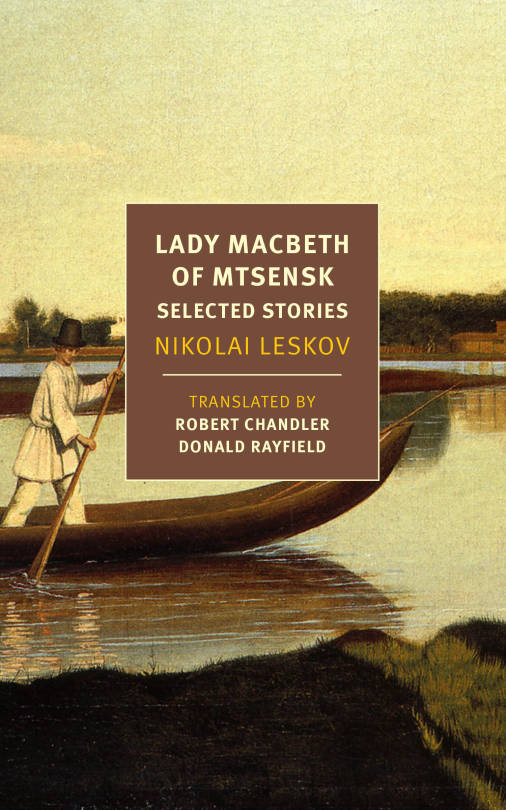
Nikolai Leskov, Lady Macbeth of Mtsensk: Selected Stories
Nineteenth-century Russian literature abounds with gems, but none stranger than the stories of Nikolai Leskov. An inspiration for Walter Benjamin’s famous essay “The Storyteller,” Leskov’s work hews close to the old world of oral tradition. Its title story is a tale of illicit love and multiple murder that could easily find its way into a Scottish ballad.
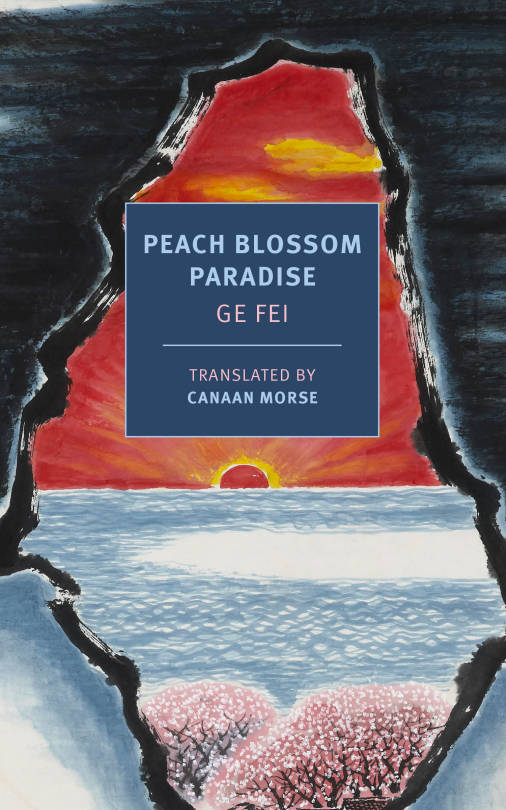
Ge Fei, Peach Blossom Paradise
Ge Fei’s The Invisibility Cloak was a comic novel of contemporary China, but here, he turns a steely gaze to the year 1898, the country ablaze with hopes of revolution. Xiumi, a young daughter of wealthy parents who becomes a pawn in the reform efforts of several men, begins to fight the Confucian social mores that view women as property. Her campaign for change is a battle to win control of her own body—whatever the cost.
We are excited to welcome William Gaddis to the NYRB Classics catalog in October. These two masterworks of contemporary American literature are massive in size and scope, interrogating authenticity, capitalism, and American identity.
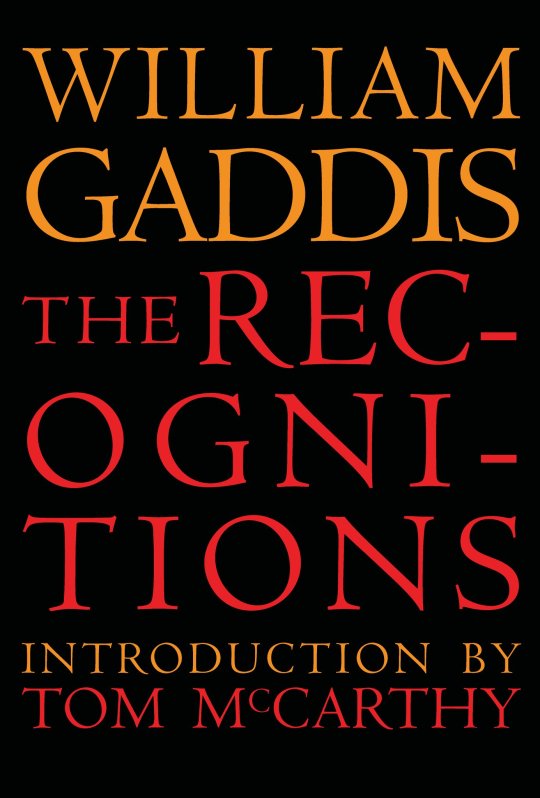
William Gaddis, The Recognitions
As monstrously populated as the paintings of Hieronymus Bosch, The Recognitions is nearly impossible to describe—but at its center are Wyatt Gwyon, a painter who can only copy the old masters, and Recktall Brown, a sinister huckster who finds and sells off his copies as originals. Gaddis’s strange cast of characters lose their minds and change their names, cementing the sense of a world where reality no longer has any meaning at all.

William Gaddis, J R
J R is another impossibly abundant deep dive into a world of fraudsters and finance—this time written almost entirely in dialogue. J R, an enterprising middle schooler, builds a corporate empire on the backs of little more than junk-mail get-rich-quick schemes and the school payphone. Soon enough everyone from Wall Street to Washington is entangled, in a biting satire of American capitalism.
Our September preview showcases stories of familial dysfunction from the brilliant Natalia Ginzburg and Susan Taubes. The beloved Italian author considers the strained relationships between parents, children, and siblings, while Taubes’s Divorcing, out of print for over fifty years, takes up the collapse of a marriage and a sense of self.
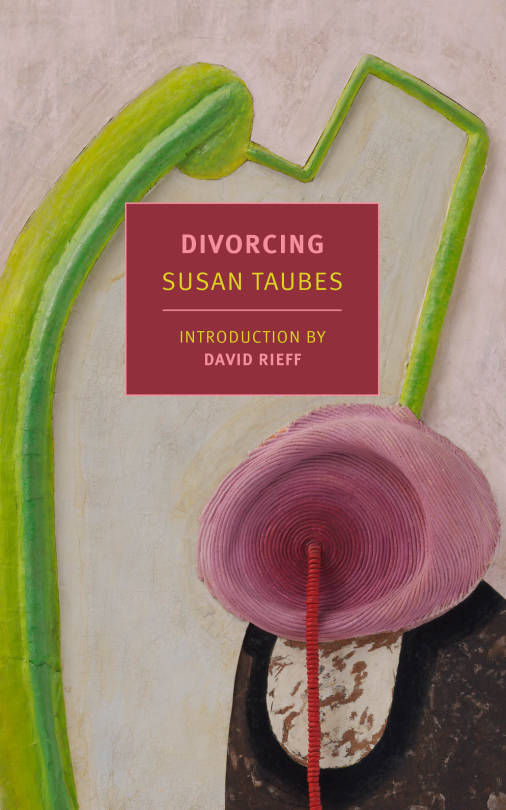
Susan Taubes, Divorcing
Sophie Blind is divorced—and not merely from her husband but from herself, as her own memories and emotions seem increasingly remote. In luminous fragments, the narrative flits from New York to her childhood home of Budapest, considering her parents’ divorce alongside her own. Fans of Renata Adler and Elizabeth Hardwick, take note: this dreamlike novel from 1969 is a forgotten precursor to their lyrical work in the ’70s. Taubes, a close friend of Susan Sontag, committed suicide at forty-one soon after its publication.
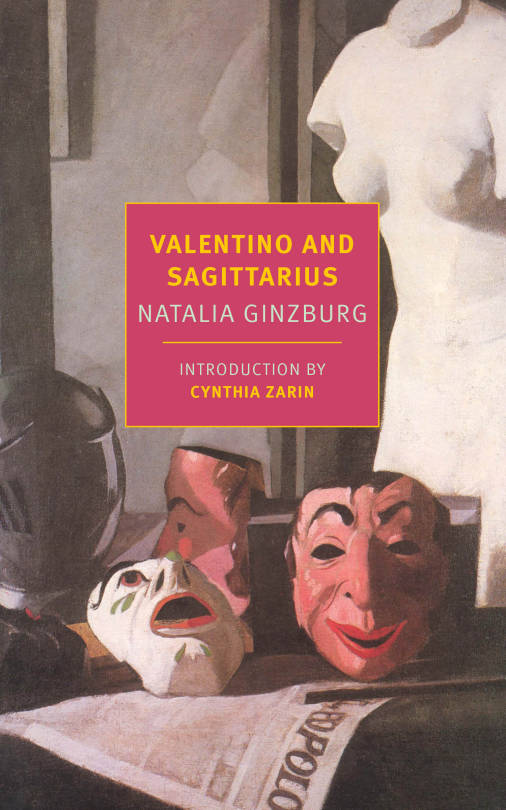
Natalia Ginzburg, Valentino and Sagittarius
From the celebrated author of Family Lexicon comes these two novellas of dysfunctional family life. In Valentino, a sister tells the story of her doted-upon brother, who upends his family’s expectations when he suddenly marries an ugly but wealthy older woman and begins a secret affair with her male cousin. In Sagittarius, a daughter and her hypercritical mother move to the suburbs, where she becomes obsessed with impossible dreams of opening an art gallery.
Next up is our new season of NYRB Classics, starting from August 2020 and spanning all the way to January 2021. In August, you can get the best of both worlds with these two collections: one of the political essay through the ages and the other of dark, whimsical Soviet-era short stories.
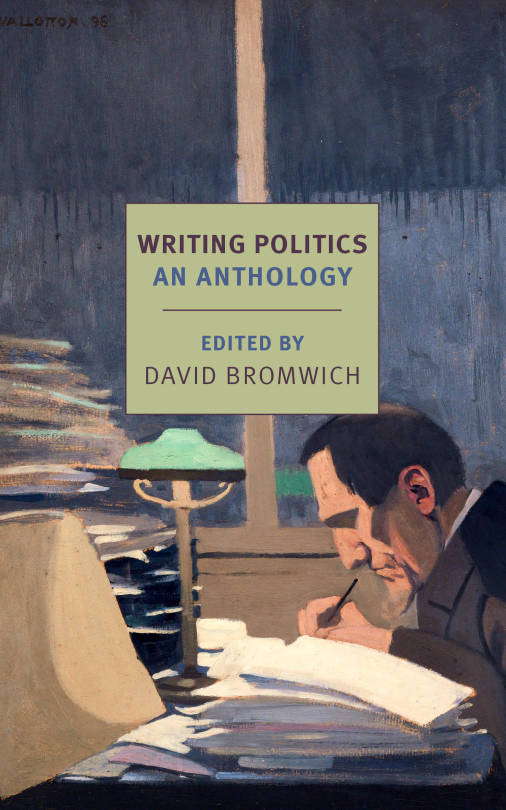
Writing Politics: An Anthology, edited by David Bromwich
David Bromwich, one of the greatest political writers on the left today, presents twenty-seven essays that grapple with issues that continue to shape history—revolution, racism, women’s rights, citizenship, and the status of the worker among them—and are prime examples of the power of the essay to reshape our thoughts and the world. Selections include Jonathan Swift, Edmund Burke, George Eliot, Harriet Taylor, W.E.B Du Bois, Mohandas Gandhi, George Orwell, Martin Luther King, and Hannah Arendt.
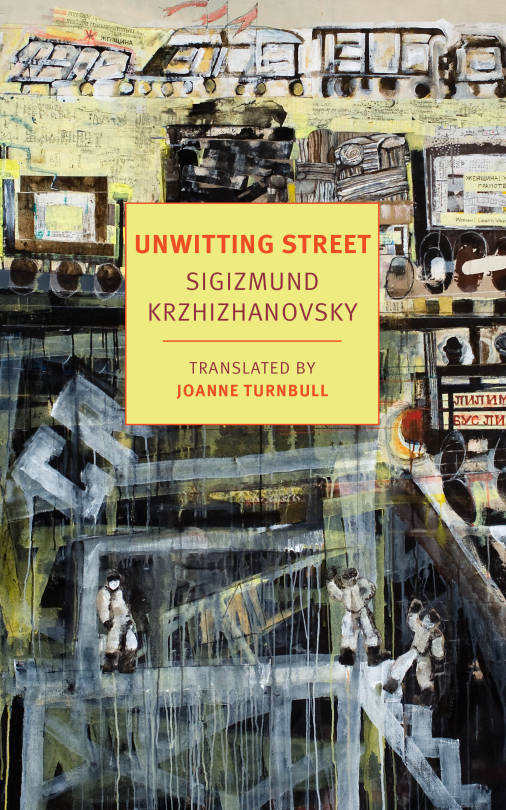
Sigizmund Krzhizhanovsky, Unwitting Street: Stories
Sigizmund Krzhizhanovsky is one of NYRB Classics’s greatest discoveries—a gifted storyteller censored for decades by the Soviet regime. The stories of Unwitting Street are brief and playful, making it a perfect introduction. But it’s not all fun and games: even the zaniest of his stories are alive with an undercurrent of darkness. (Take the one where a cursed gray fedora drives its wearers to suicide.)
With the world turned upside down, we could all use something to look forward to—so, for the next few weeks, we’ll be highlighting our new season of books coming in the fall. First up are four new nonfiction titles from our New York Review Books series, all arriving in September: a literary biography of Balzac, a memoir on loss, the autobiography of an artist too long mistaken for a muse, and a collection of entire essays on single sentences.

Peter Brooks, Balzac’s Lives
Balzac’s massive exploration of French society, The Human Comedy, is said to have invented the nineteenth-century novel, if not the nineteenth century itself (according to Oscar Wilde). Here, writer and scholar Peter Brooks examines the man behind the masterpiece in a vivid and searching study that is based on a close examination of his extraordinary characters—from the capitalist Gobseck to the gay criminal mastermind Collin.
Dorothy Gallagher, Stories I Forgot to Tell You
Dorothy Gallagher’s husband, Ben Sonnenberg, the author of Lost Property: Memoirs and Confessions of a Bad Boy (out in June), died over a decade ago after a long battle with multiple sclerosis. In Stories I Forgot to Tell You, she moves between present and past, the smallest moments of life with her husband and her life after him. It’s a quirky and profound portrait of love, of loss, and of two writers sharing a life.
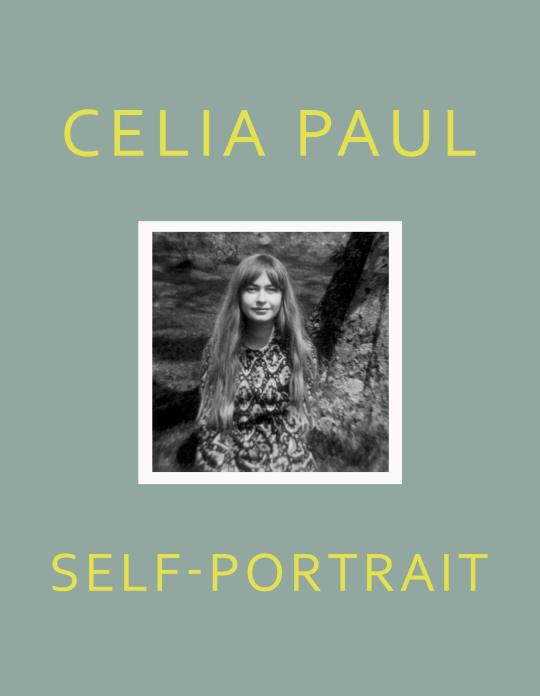
Celia Paul, Self-Portrait
Celia Paul, one of Britain’s greatest painters alive today, lived long in the shadow of the domineering artist Lucian Freud: their decades-long relationship began when she was eighteen and he fifty-five. This intimate, introspective memoir puts her finally at the center of her own story, with poignant reflections on Freud as well as childhood, family, and motherhood, and above all her unyielding dedication to art.
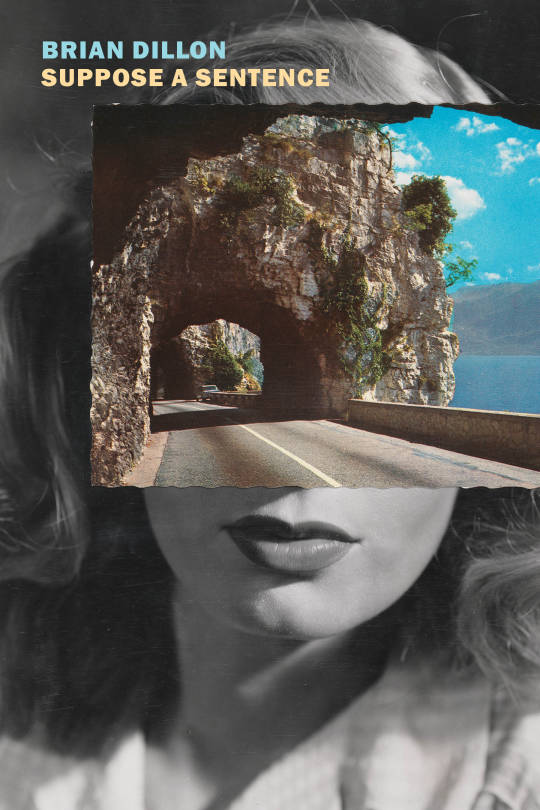
Brian Dillon, Suppose a Sentence
Brian Dillon’s last book, Essayism, was a roaming love letter to literature’s perhaps most indefinable form. In this collection, he offers a series of essays prompted by a single sentence—from Shakespeare to Janet Malcolm, John Ruskin to Joan Didion—exploring style, voice, language, and the subjectivity of reading.

